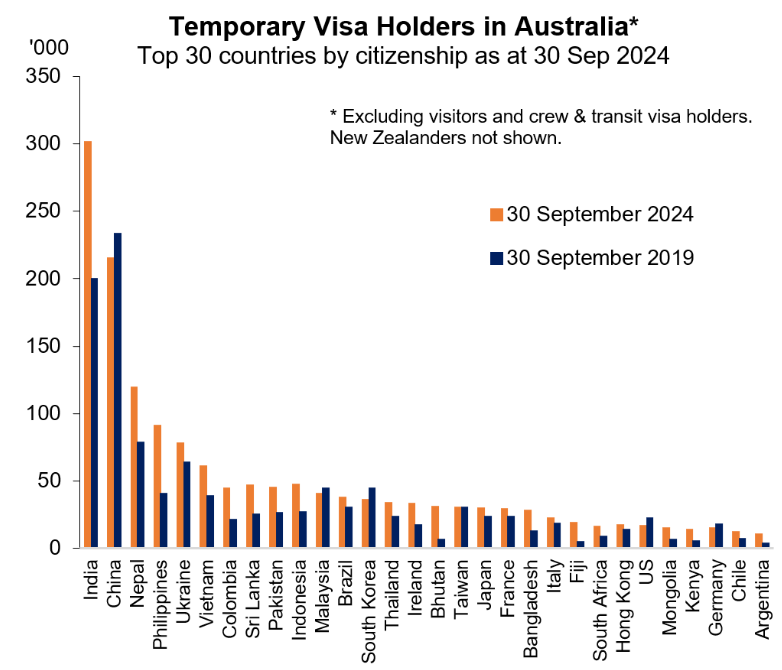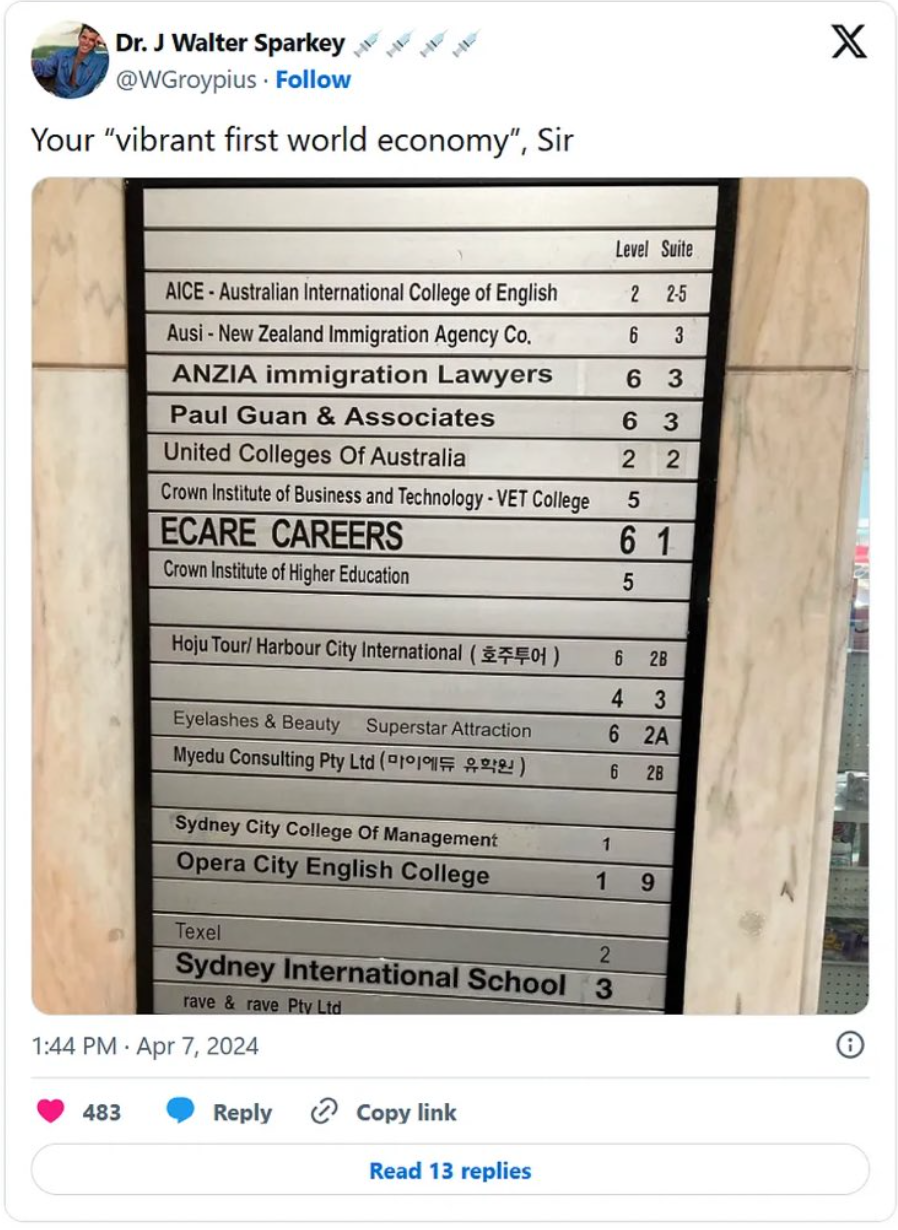India has led the surge in Australian temporary migration since the pandemic began.
There were 300,000 Indians holding temporary visas in the September quarter (excluding visitors), up from 200,000 in September 2019.

Included in this 300,000 figure were 115,000 Indians on student visas and 80,000 Indians on graduate visas.
More than a decade ago, Australia experienced a large increase in the number of Indian students enrolling in questionable VET courses such as hairdressing and cooking, with many seeking permanent residency.
Private colleges and agents operated as ‘middlemen’ for Australia’s immigration system, garnering large commissions from fake students seeking backdoor work rights and permanent residency.
History doesn’t repeat but it sure does rhyme.
The last few years have seen an explosion in fake students enrolling in dodgy private colleges.

“Universities are reporting sharp increases in the number of Indian students who either arrive in Australia but never step foot in their institution or abandon their course shortly after”, The AFR reported in 2023.
“One university said about 500 of its expected 1200 new enrolments from India for semester two last year either did not front up or jumped ship in the first six months”.
“Use of student visas as a back door to the jobs market is also rife, with some colleges merely shopfronts with little or no teaching and administration facilities”.
The situation was so bad that International Education Association of Australia CEO Phil Honeywood labelled Australia’s international education system a “Ponzi scheme” for enticing non-genuine students through migration pathways.
A new report published in India Today describes how prospective Indian students choose a study destination based on opportunities for work rights and permanent residency, not for the quality of education on offer:
Whether it’s securing a job after graduation or bringing family along, the ease of a country’s visa processes is now just as critical as academic excellence.
As Gaurav Batra, Founder and CEO of Infinite Group, puts it, “Indian students now give preference to nations with more straightforward job and permanent residency requirements”…
Factors such as post-study work opportunities, immigration pathways, and language requirements are now at the forefront of decision-making processes…
If there’s one common factor shaping student decisions, it’s the ability to work after graduation and transition to permanent residency…
Australia and Canada have been particularly proactive in extending these opportunities, making them attractive options…
Various migration pacts signed between Australia and India have facilitated the growth of Indian students and graduates by enhancing opportunities to study, work, and live in Australia. These include:
- The Australia-India Economic Cooperation and Trade Agreement (ECTA), signed by the former Coalition government.
- Australia-India Migration and Mobility Partnership Agreement, signed by the current Labor government.
- The Mechanism for Mutual Recognition of Qualifications, signed by the current Labor government.
Victorian Premier Jacinta Allan also visited India in September 2024, grovelling for more Indian students.
Australia’s policymakers and media should drop the charade and acknowledge that international education is an immigration racket.
Instead of trying to maximise numbers, policymakers should target a smaller pool of excellent (genuine) students.
This could be achieved via the following types of reforms:
- Significantly increasing English-language standards and requiring prospective students to complete entrance examinations before being permitted to study in Australia.
- Significantly increasing financial requirements, including requiring funds to be paid into an escrow account before arriving in Australia.
- Reducing the number of hours that international students are allowed to work and severing the direct link between study, work, and permanent residency.
- Allowing only top-of-class graduates to receive graduate visas.
- Because Australian universities are non-profit enterprises that do not pay taxes, imposing a levy on international students to ensure that Australians receive a financial return from the trade.
Universities should also be required to provide on-campus housing for international students in proportion to the number of enrolments to reduce pressure on the private rental market.
Sadly, our governments have chosen quantity over quality and trashed entry and teaching standards.

